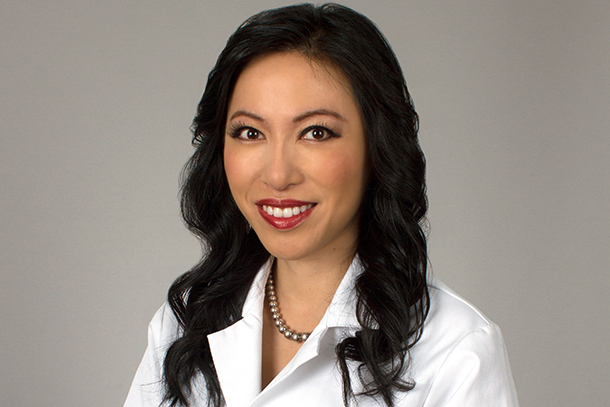April Armstrong, MD, MPH, has recently published several articles in journals such as JAMA Dermatology and the Journal of the American Academy of Dermatology, earning her the distinction of being one of the most highly valued authors in her field. The rankings are compiled by JAMA Dermatology and are based on the number of recent publications as well as the quality of the publications.
Though at first glance, Armstrong’s primary research interests, which are psoriasis and telemedicine, might appear unrelated, there is a common thread.
“I am interested in improving the quality of care for psoriasis patients and in utilizing tools, like telemedicine, to improve care for all dermatology patients,” said Armstrong, associate professor of clinical dermatology and associate dean for clinical research at the Keck School of Medicine of USC.
Armstrong has conducted research on the safety and efficacy of biologics, a relatively new class of drugs for treating psoriasis, a skin condition that can be both physically and psychologically challenging for millions of sufferers. She also examines overall treatment patterns for psoriasis patients with the goal of identifying gaps in patient care.
One of the gaps, she said, comes from the fact that, although the new treatments are improving the quality of life for many patients, access to them still is not equal. Gaps in patient care also are the result of patients ending treatment because it hasn’t been effective or because their provider hasn’t offered them the full range of treatment options.
Armstrong also has been using telemedicine since she was a resident and “saw” patients on Nantucket Island, who normally would have to take a ferry to Massachusetts to see a dermatologist. Since then, she has seen many patients who cannot easily visit a dermatologist because they live in far-flung rural areas or because they are in prison.
Since coming to Keck Medicine of USC, Armstrong has expanded her telemedicine research to include people for whom making a doctor’s appointment is not as difficult, but still may require they take time off work, in an effort to understand if these patients will receive more regular care and follow-up care if it is more convenient.
— Hope Hamashige


